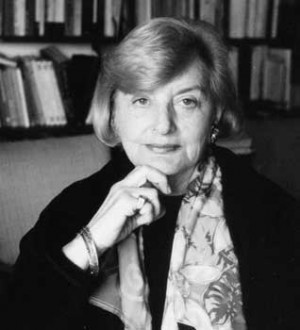 BEL PEDROSAHer friend Antonio Candido tenderly called her an “academic animal,” a rare and threatened species, unfortunately. The death of Marlyse Meyer (1924-2010) means a major loss of an outstanding thinker of Brazilian culture, in her high and low studies (as she, incidentally, named the research group that she established at USP in 1975). Always active, she had retired from the Arts Institute of the State University of Campinas (Unicamp). However, this did not keep her from continuing to write and to advise students. She left few books, given her intellectual grandeur, but excellent ones: Folhetim, uma história (Companhia das Letras, 1997), her greatest success and, according to her, “the book that gave me the greatest pleasure;” Pirineus, caiçaras: deambulações literárias (Unicamp, 1991); Surpresas do amor: a conversação no teatro de Marivaux, her doctoral thesis (Edusp, 1993); Caminhos do imaginário no Brasil (Edusp, 1993); and As mil faces de um herói canalha (UFRJ, 1998). She was also the editor of Do Almanack aos Almanaques (Fundação Memorial da América Latina and Ateliê Editorial, 2001).
BEL PEDROSAHer friend Antonio Candido tenderly called her an “academic animal,” a rare and threatened species, unfortunately. The death of Marlyse Meyer (1924-2010) means a major loss of an outstanding thinker of Brazilian culture, in her high and low studies (as she, incidentally, named the research group that she established at USP in 1975). Always active, she had retired from the Arts Institute of the State University of Campinas (Unicamp). However, this did not keep her from continuing to write and to advise students. She left few books, given her intellectual grandeur, but excellent ones: Folhetim, uma história (Companhia das Letras, 1997), her greatest success and, according to her, “the book that gave me the greatest pleasure;” Pirineus, caiçaras: deambulações literárias (Unicamp, 1991); Surpresas do amor: a conversação no teatro de Marivaux, her doctoral thesis (Edusp, 1993); Caminhos do imaginário no Brasil (Edusp, 1993); and As mil faces de um herói canalha (UFRJ, 1998). She was also the editor of Do Almanack aos Almanaques (Fundação Memorial da América Latina and Ateliê Editorial, 2001).
She went into the field of literature, as she used to say, for “lack of courage:” she wanted to study history or social studies, but the former “involved drawing because of the maps” and the latter, “statistics.” In a prep course for university entrance exams she met Antonio Candido, who became a long-lasting and great friend. She met her husband, the physicist Jean Meyer, at the School of Philosophy and accompanied him when he moved to Europe to work, first to Italy, were she studied and taught at the Venice School of Literature, and later to France, where she lectured at the Institut d’Etudes Luso-Brésiliennes. She was about to return to Brazil in the 1960s when the military coup and the AI-5 law caused her to postpone her return, which only occurred in 1975. She lived in France in 1968 and boldly asked students to translate pamphlets for the Portuguese workers at Renault.
Antonio Candido wanted her to join USP, but she ended up at Unicamp, as she needed to get a job quickly. She became a professor at the Arts Institute because of her thesis on theatre. She loved studying “second-rate novels” and soap-operas (which she suggested to students so that they could understand feuilleton novels better). She also ventured into the study of Candomblé [an Afro-Brazilian religion] and enjoyed saying that, because of all this, “I was post-modern and didn?t know it.” She won the Jabuti award in 1997 for her book Folhetim and became famous when she translated Sergio Buarque de Holanda’s Raizes do Brasil into French.
Republish